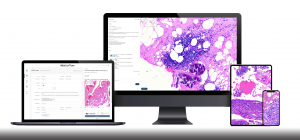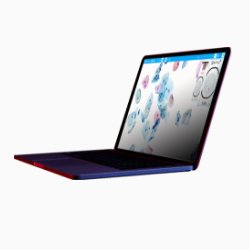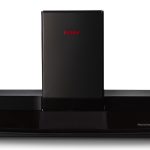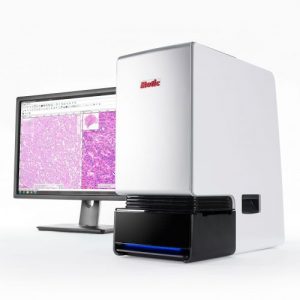Imagine you are a woman who finds a lump in your breast.
Now imagine that the nearest hospital you can go to have it biopsied is hundreds of miles from your home.
Oh, and it’s located at the top of a mountain.
For many patients treated at Butaro District Hospital in Rwanda, this scenario isn’t a distant hypothetical, it’s their lived reality.
And it’s a reality that Motic partner Scott Kilcoyne witnessed firsthand in 2018 when he traveled to Rwanda. Kilcoyne was there with Jeff Zhu, from the American Society for Clinical Pathology’s Partners for Cancer Diagnosis and Treatment in Africa Initiative, to help set up the first Motic scanner in their telepathology network.
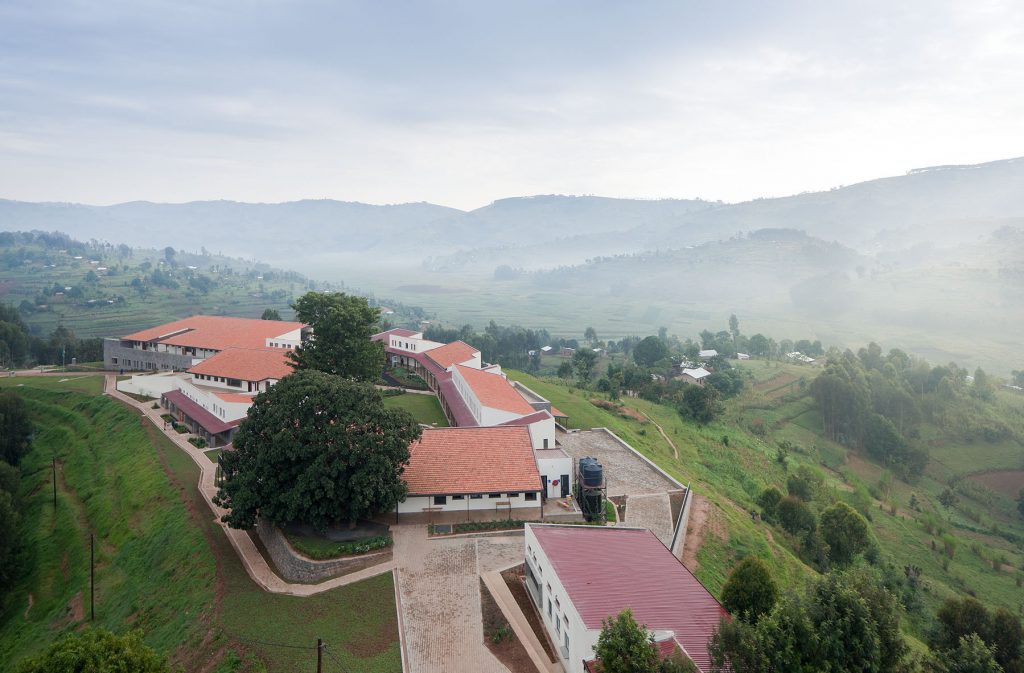
About Partners for Cancer Diagnosis and Treatment
Founded in 2015, Partners for Cancer Diagnosis and Treatment focuses on the ASCP’s efforts to combat cancer in low- and middle-income countries (LMICs), both in Africa and elsewhere around the world. Globally, cancer rates are rising. And these growing cancer rates are an even greater threat in LMICs because patients often lack access to the timely diagnostics that would lead to treatment during the earlier stages of their cancers. Due in part to delays in care, the overall cancer mortality rate in Africa is nearly 80%, a stark contrast to outcomes in high-income countries.
About Motic’s Involvement with the ASCP’s Initiative
The ASCP and Motic both recognize that the digital turn in pathology already offers the tools to confront the global cancer burden. Through the Initiative, which is one of Motic’s key philanthropic partnerships, the ASCP buys MoticEasyScan Ones and installs them at hospital pathology labs in remote or underserved regions. Then, via a secure, cloud-based case management platform donated by Motic, pathologists in these areas upload their slides for viewing and assessment by volunteer experts across all specialties in the United States. The platform allows African clinicians to access second opinions and consultations without the costs and waiting time typically associated with shipping glass slides.
A selection of photographs courtesy of Scott Kilcoyne, documenting trips with Partners for Cancer Diagnosis and Treatment. Click on the pictures for additional information.
Installing a Teleconsultation System in Rwanda
So why start at Butaro District Hospital?
“We chose Rwanda [from three initial options] knowing it would be the most difficult install in terms of how remote the hospital is and the lack of robust infrastructure,” Kilcoyne says. Tackling the most challenging location first would give the team a clearer sense of the obstacles they’d be facing with future installations.
And they certainly encountered obstacles aplenty.
For one thing, the hospital was located three and a half hours from the hotel where the team stayed. “It was not easy to get to,” Kilcoyne recalls, laughing at his own understatement. “We’re talking dirt roads and navigating around boulders in a 1990 Toyota Tercel! I was amazed the GPS still worked.”
Incredibly, some patients trek up those roads by foot.
Kilcoyne recounts how on one occasion the ASCP team had to wait until after midnight to descend the mountain, due to weather conditions. Driving at night nearly doubled their travel time and it took the team about six hours to make it to the bottom. On the way down, their car passed by multiple people walking along the road in the dark. These were patients making the climb in the middle of the night to get to their appointments the next morning.
Telepathology Alleviates the Cancer Diagnostic Burden
For Kilcoyne, the benefits of digital pathology could not be more clear for these pathology patients at Butaro District Hospital and elsewhere. “Telepathology levels the playing field for any patient with cancer,” he says. “The level of service in Africa is the same as [what is offered by] US-boarded pathologists, but the outcomes are different because pathologist supply is so low.” Oftentimes, there might be only one pathologist covering an entire hospital or region.
Motic’s partnership with the ASCP allows these pathologists to have a voice in the global medical community, to bounce ideas off of colleagues many time zones away, and share questions and receive answers in real-time. These gains translate to patients receiving timely, expert diagnostic care that can make a true difference in their outcomes.
“Cancer is just as large of a health problem in Africa as AIDS and malaria,” Kilcoyne says. “It’s incredibly rewarding to be part of an initiative with the ASCP and Motic that is making such a tangible difference in the lives of those who most need it.”
What’s Next?
Since the initial installation at Butaro District Hospital, the ASCP and Motic have deployed scanners to hospitals in six different countries, with twelve more facilities slated for coverage in phase one of the project. Together, the ASCP and Motic are imagining — and making possible — a world in which a timely, accurate cancer diagnosis is within reach of anyone, anywhere.
Would you like to get your organization involved with Partners for Cancer Diagnosis and Treatment? Contact us today to find out how!

